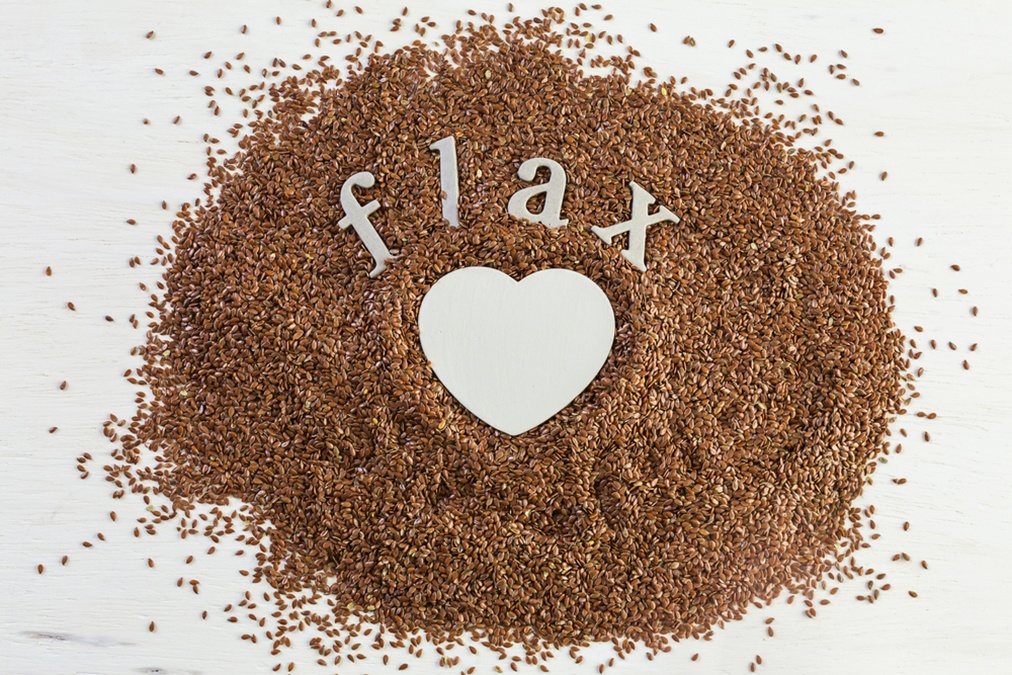 If you are trying to stay off your dreaded blood pressure medication and are looking for natural ways to keep yourself heart healthy, we have good news.
If you are trying to stay off your dreaded blood pressure medication and are looking for natural ways to keep yourself heart healthy, we have good news.
Scientists have discovered that a cost-effective seed, which is easily available from your supermarket, can drastically lower your blood pressure.
Two teams of researchers have recently conducted scientific literature reviews independently on the ability of flaxseed to reduce blood pressure.
Both considered only properly controlled scientific experiments in order to improve the validity of their results.
The first of these, which was published in The Journal of nutrition, concluded that on average, flaxseed consumers had 1.77 mmHg lower systolic blood pressure and 1.58 mmHg lower diastolic blood pressure than those who did not consume flaxseed.
Remember that these were the average values. You may be one of the lucky ones that this would work a lot better for.
According to the review, whole flaxseeds are more effective than flaxseed oil at reducing systolic blood pressure, while both were found to work on diastolic blood pressure. Furthermore, those who used it for more than 12 weeks benefited more than those who used it for a shorter period.
The second review, published in Clinical Nutrition, only included studies on flaxseed supplements, and reached even bigger conclusions.
• When all the types of supplements and duration of consumption were calculated and compiled, it was found that there was an average systolic drop of 2.85 mmHg and diastolic drop of 2.39.
• Those who took a flaxseed supplement for more than 12 weeks enjoyed a systolic drop of 3.10 mmHg and a diastolic drop of 2.62, both of which were genuinely impressive reductions.
• Those who took a powder supplement shed both systolic and diastolic points, those who took an oil supplement shed only diastolic points, and those who took a lignan extract did not benefit at all.
This review thus indicates that it is not the lignans in flaxseed that are responsible for the results. Rather, it is probably the active ingredients, i.e. the fiber and omega-3 fatty acids, or more specifically the alpha-linolenic acid (ALA), from which your body produces omega-3.
This is why researchers have also found that fish oil can lower blood pressure. It also contains omega-3 fatty acids, in the form of eicosapentaenoic acid (EPA) and docosahexaenoic acid (DHA).
To further attest to this, a 2009 scientific literature review in the journal Current Vascular Pharmacology concluded that long-term supplementation with omega-3 fatty acids brought about a significant drop in blood pressure.
According to the authors, omega-3 seemed to:
– promote the excretion of sodium in urine
– promote the flexibility of blood vessels
– decrease the production of substances that constrict blood vessels and cause inflammation
– reduce ACE activity (similar to some blood pressure medication)
– enhance nitric oxide in the arterial lining
– activate the parasympathetic nervous system, and
– play a role in many other biological systems that are used to regulate blood pressure
Is there anything this amazing antioxidant cannot do?
Luckily, flaxseed is easy to incorporate in your diet. Raw flaxseeds are tough to eat, so you may want to buy flaxseed meal or at least a flour mill to grind your own flaxseeds.
Once you have the ground flaxseeds, you can add them to smoothies, salads, cereal, and any other vegetable dish.
Flaxseed meal also works well as an egg substitute for vegans. Just take 1-tablespoon flaxseed meal and mix it with 2 tablespoons of water and it will make the equivalent of one egg.
Flaxseed oil needs to stay cold, so it works brilliantly in salads and smoothies.

 Multiple Sclerosis
Multiple Sclerosis Banishing Bronchitis
Banishing Bronchitis Gum Disease Gone
Gum Disease Gone Overcoming Onychomycosis
Overcoming Onychomycosis Neuropathy No More
Neuropathy No More The Prostate Protocol
The Prostate Protocol Brain Booster
Brain Booster
 Ironbound
Ironbound
 Solution for Shingles
Solution for Shingles
 The Bone Density Solution
The Bone Density Solution
 The Ultimate Healing Protocol
The Ultimate Healing Protocol
 The Parkinson's Protocol
The Parkinson's Protocol
 The Chronic Kidney Disease Solution
The Chronic Kidney Disease Solution
 Overthrowing Anxiety
Overthrowing Anxiety The Fatty Liver Solution
The Fatty Liver Solution The Hypothyroidism Solution
The Hypothyroidism Solution
 The End of Gout
The End of Gout The Blood Pressure Program
The Blood Pressure Program
 The Oxigized Cholesterol Strategy
The Oxigized Cholesterol Strategy
 Stop Snoring And Sleep Apnea Program
Stop Snoring And Sleep Apnea Program
 The Arthritis Strategy
The Arthritis Strategy The Vertigo & Dizziness Program
The Vertigo & Dizziness Program The 3-Step Diabetes Strategy
The 3-Step Diabetes Strategy Hemorrhoids Healing Protocol
Hemorrhoids Healing Protocol The Erectile Dysfunction Master
The Erectile Dysfunction Master Weight Loss Breeze
Weight Loss Breeze The IBS Program
The IBS Program The Insomnia Program
The Insomnia Program The Migraine and Headache Program
The Migraine and Headache Program The Neck Pain Solution
The Neck Pain Solution The Menopause Solution
The Menopause Solution The Ejaculation Master
The Ejaculation Master The TMJ Solution
The TMJ Solution The Acid Reflux Solution
The Acid Reflux Solution The Fibromyalgia Solution
The Fibromyalgia Solution The Psoriasis Strategy
The Psoriasis Strategy